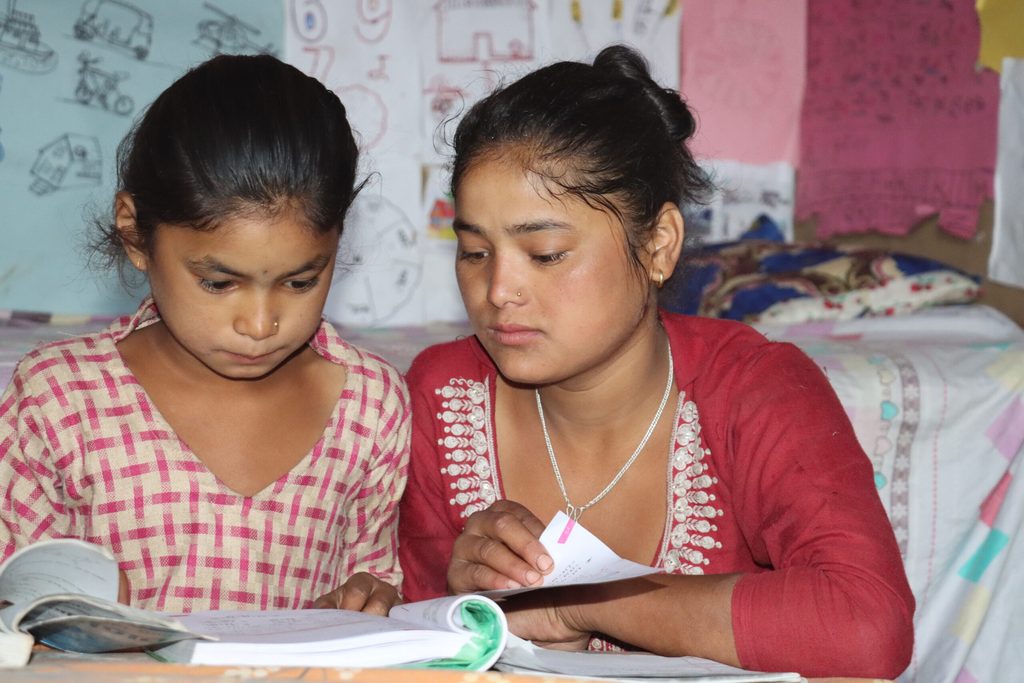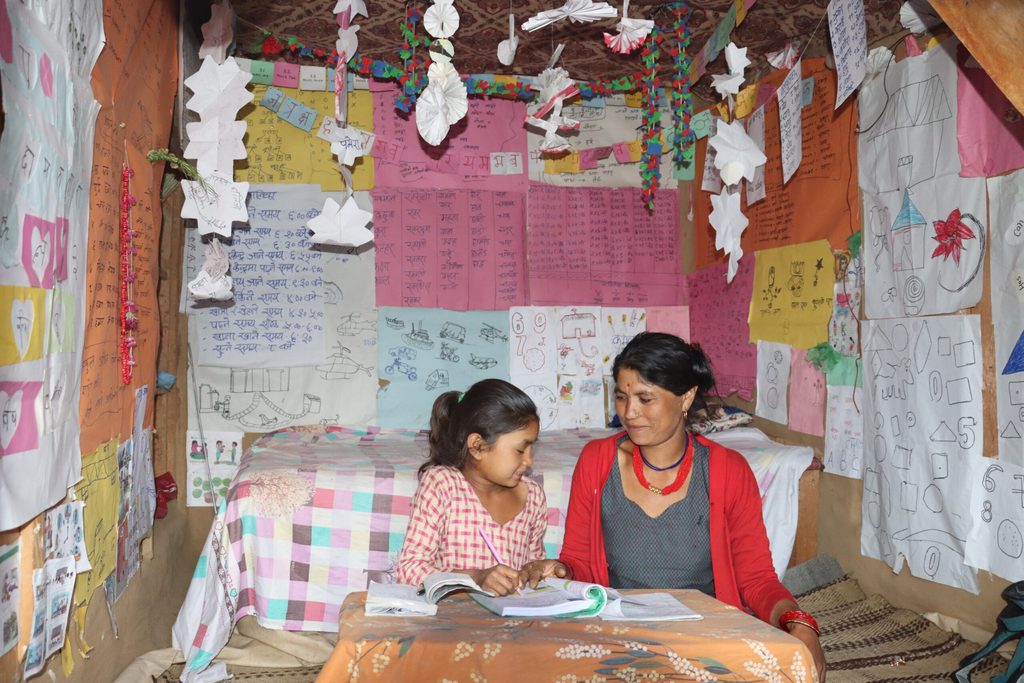Children stay in school to prevent child marriages
Pratikshya, 9, is among 1,200 children in Kalikot who are being supported with extra classes so they stay in school and build positive futures.

Nine-year-old Pratikshya recently completed the third grade at primary school and proudly celebrated getting good marks. Having once struggled with her studies, Pratikshya has been able to catch up to her classmates after being enrolled in remedial classes to keep young Nepali students – notably girls – from dropping out of school permanently and increasing their risk of child, early and forced marriage.
From Kalikot district in the western region of Nepal, Pratikshya’ parents did not finish their schooling and got married when they were 16. “I wanted to continue my education, but in our community, you get married early to take responsibility for your family,” explains Pratikshya’s father Anil who works as a farmer.
“I decided to work hard for my children but my income is not enough to provide them with everything they need. My eldest son and daughters could not continue their education and dropped out of school early. My eldest son is now working in India as a labourer and my older daughters help their mother with the farming and household chores.”
Pratikshya’s mother, Chana explains that there is a lot to do on their farm. The family grows seasonal crops and sells them at the local market. “We only have a small piece of land and we are unable to grow much due to the changing weather. Every year, we spend more on seeds and fertiliser but are producing fewer crops. Because of this, I have started to work as a maid for other families.”
As the youngest child in the family, Pratikshya is much loved and is a playful and headstrong girl. Her mother Chana admits that she is unable to pay much attention to her schooling. “She does not like to do her homework. She loves to play with her friends, make noise, ask for things, and annoy her sisters.”
Pratikshya’s teacher noticed that she was falling behind in class. “She was a slow learner, weak in reading and writing, and with a poor attention span. It was getting difficult for her to keep up with her friends. Her parents rarely came to the school to speak with the teachers about her progress.”
Remedial classes boost learning
Due to her low performance at school, Pratikshya’s teacher suggested that she start attending remedial lessons. The classes are for students who are struggling with their studies.
The remedial classes are offered to children after school for 2 hours each day. The lessons focus on subjects such as Nepali, English, maths and science and are led by teachers who have received on-site coaching and mentoring which is key to the programme’s success.
“The remedial classes are very helpful. It was difficult for me to read and write before. Now, I can easily read my textbook without any support. Now I am not scared of my teachers and I can speak confidently in front of my class too,” says Pratikshya.
Anil and Chana were also invited to take part in parenting sessions which highlight the essential role that parents play in supporting their children’s education. “In the beginning, it was awkward as I was not sure whether I should be sharing Pratikshya’s grades. Then I realised it was more about my learning and how I can support her to change her behaviour,” explains Chana.
“I used to be very lazy. Now I wake up and go to the reading corning and memorise my multiplication tables.”
Pratikshya, 9.
Both Anil and Chana learned tips on how to motivate Pratikshya to concentrate on her studies. “This was a good opportunity for us both to learn more about our daughter. We now have regular discussions with her about her studies, stay with her while she does her homework, and read stories together,” shares Anil.
Chana also accompanies Pratikshya to her remedial classes, something that project coordinator Diksha says helps create a conducive, safe learning environment. “As a result, we see the child’s increased interest, motivation, and self-confidence in school. They start to place more importance on education, and their attitude improves.”
The parenting sessions are an effective way to teach caregivers about the importance and value of education and encourage them to send their sons and daughters to school regularly and give their children more time to focus on their studies rather than overloading them with household chores.
Parents are also asked to set up reading corners in their homes so that their children can continue their learning at home and have a safe place to do their homework. Chana and Anil prepared a reading corner for Pratikshya, made using locally available resources.
“The reading corner is a designated area in the home where children can study, practice reading, and parents can spend time with them and encourage their learning. It provides a safe space where they can hand the resources they receive and projects they make at the remedial classes to create a study space,” explains Diksha.

Pratikshya loves her new reading area and both she and her sisters now use it to read and write and make colorful learning materials for the corner. “It has been very beneficial as my daughter loves to study surrounded by interesting reading materials that she can point to and read. I also spend time with her and her sisters every morning when they are studying in the reading corner.”
Looking forward to starting grade 4 soon, Pratikshya has a newfound love of learning. “I used to be very lazy. Now I wake up at 6 AM and go to the reading corning and memorise my multiplication tables posted on the wall. Now, I can repeat the tables up to 5. This makes me happy and my teachers appreciate my efforts.
About the project
To boost literacy and increase reading rates among the children, Plan International implemented the “Improving Reading and Writing Skills of Children in Kalikot” project in partnership with Naraharinath Rural Municipality and our partner organisation KIRDARC Nepal.
The project is being implemented in 12 community schools, with a focus on marginalised families, including sponsored children and children with disabilities. The project aims to improve education for children in grades 1-3 to prevent them from dropping out of school. Thirty-six learning centres have been established which are providing catch-up classes to more than 1,200 children.
The project also provides educational materials for children studying at the learning centres, trains teachers and parents to create locally available educational materials, conducts literacy fairs in schools, helps parents create reading corners in their homes, runs parent education programmes for school management, and lobbies for educational policies and programmes at the municipal level.
Categories: Education


